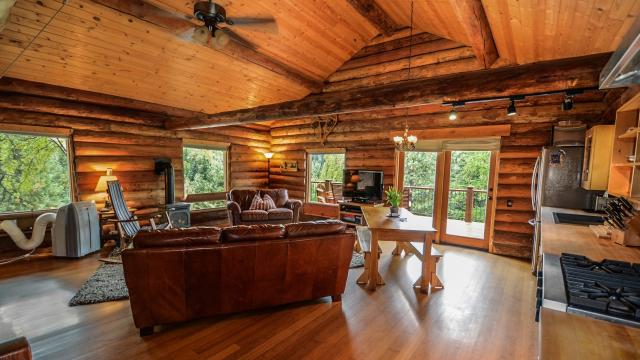If your travel plans involve an Airbnb stay in the U.S, your vacation could get more complicated (and expensive) than you expected.
Miami Beach is cracking down on Airbnb, the New York Times reports. Rentals shorter than six months and a day are illegal in many Miami Beach neighbourhoods, and city officials are increasingly knocking on doors to find Airbnb (and other short-term rental) guests in illegally rented properties.
According to the report, guests are generally told to contact their hosts and request help relocating. Some are forced to leave, some are allowed to complete their stays, and some receive assistance from the city in finding new accommodations. Many are simply out the cost of their Airbnb, and forced to relocate to a hotel at the last minute.
This can be annoying at best and contentious (and expensive) at worst, especially if your host refuses to cooperate. And Miami Beach isn’t the only place where you might encounter pushback, whether that’s from neighbours, landlords, or city officials.
Airbnb puts the responsibility on hosts to follow the rules and regulations specific to their cities — as well as their property managers, landlords, and HOAs. But many still list their homes or apartments in hopes they’ll stay under the radar. Here’s how to research ahead of your stay to minimise the chance of nasty last-minute surprises:
How to handle an illegal vacation rental
While it isn’t your job as a guest to make sure your Airbnb is legal, you can do some research on your own before you book. Airbnb outlines city regulations for many of its US locations in its hosting guidelines.
New York City, for example, has a “multiple dwelling” law that permits some stays if the host is present but prohibits renting out properties for less than 30 days if they are not.
Of course, you may not know before you arrive that your short-term rental is illegal or forbidden by a landlord or condo association. But if your host messages you beforehand or tells you when you check in to stay under the radar or say you are a family member, it’s a good indication that it’s not fully above board.
If you do find yourself in an illegal short-term rental, you can request help rebooking and/or a refund from Airbnb. Contact customer service by phone or messenger as soon as an issue arises. The company requires you to attempt to resolve concerns with your host first, though.
Look out for short-term rental taxes
Another thing that might surprise you when you go to book your Airbnb: sky-high taxes. New Jersey recently implemented an 11.6 per cent tax on short-term rentals, including Airbnbs. Massachusetts passed a similar measure (5.7 per cent), and Colorado is considering one (up to 29 per cent).
Airbnb also collects various accommodations and occupancy taxes for short-term rental hosts in many other states — those fees are generally passed on to guests.
Airbnb stays already come with cleaning and service fees, which cause prices to jump significantly from what you see in search results to how much it actually costs to book. Increasingly, though, you’ll also see occupancy taxes factored into your total.
There’s not much you can do about this additional cost other than to be aware of it — and to know that you may have to adjust your expectations to stay within your budget.

Comments